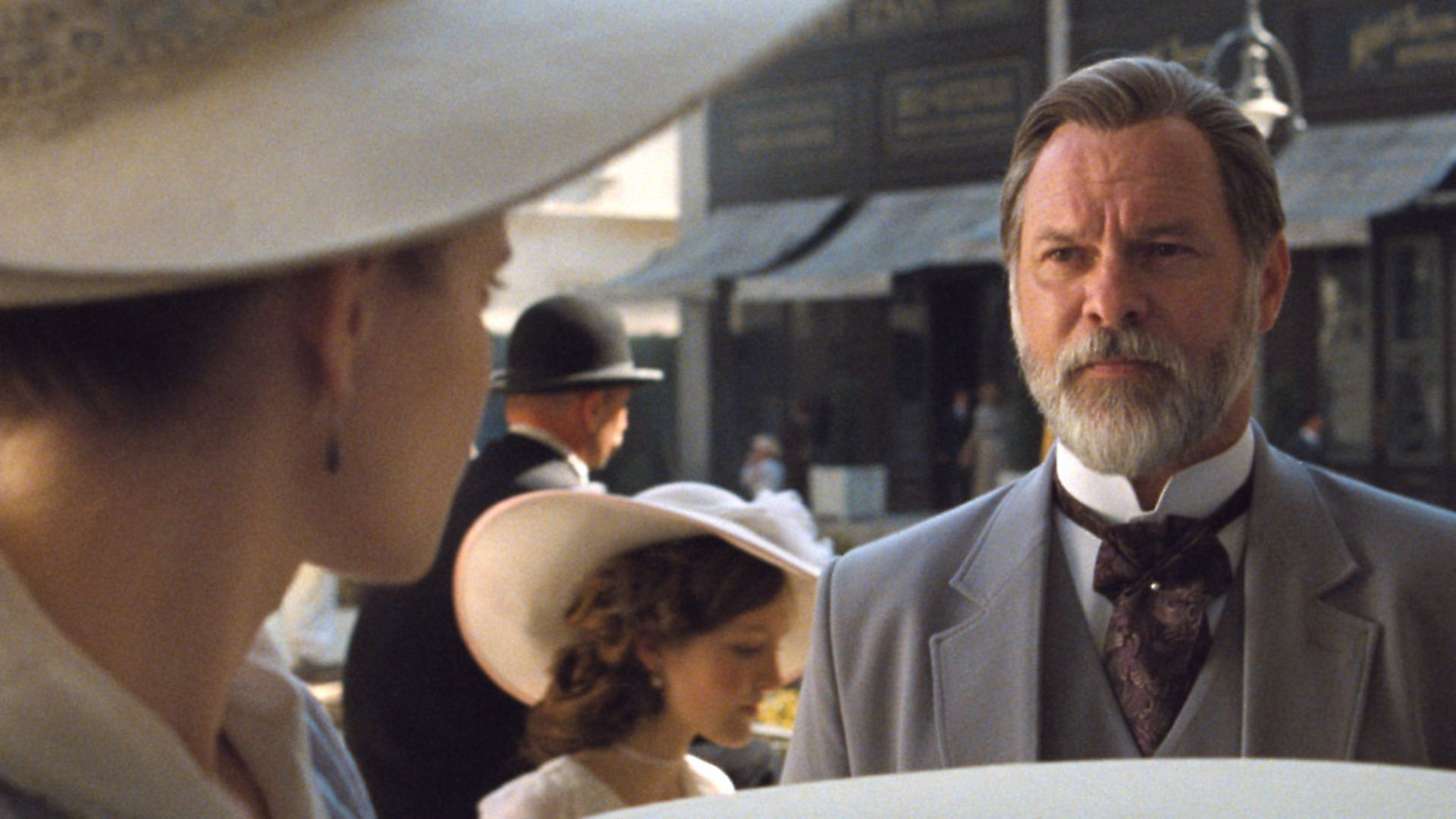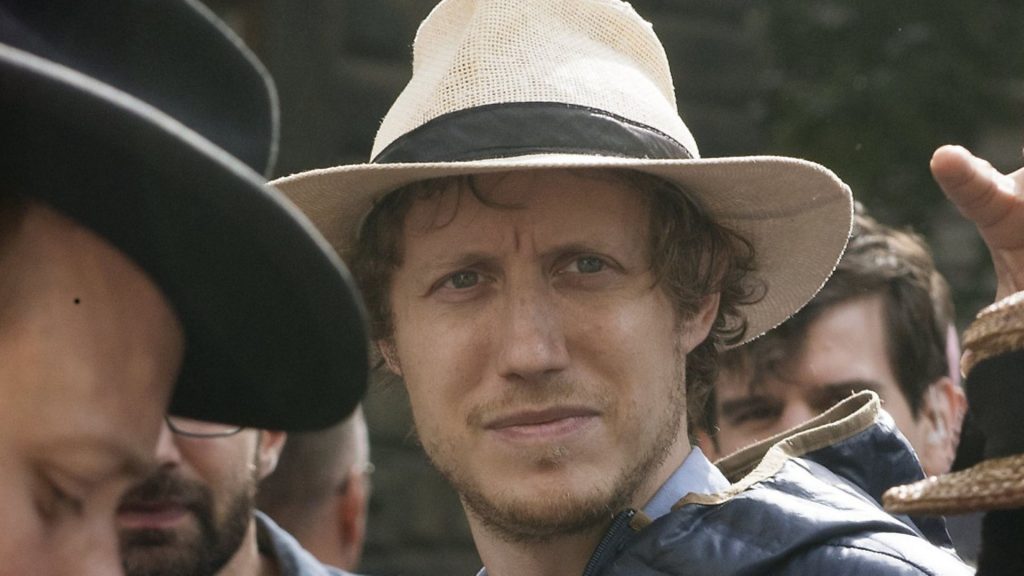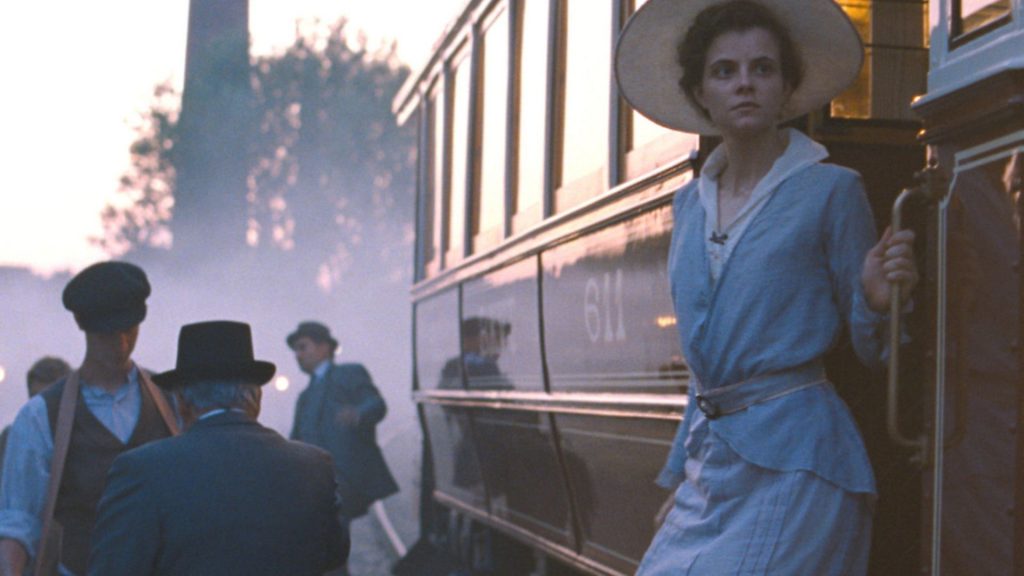
JASON SOLOMONS speaks to the makers of an enigmatic and ominous film set in Budapest shortly before the First World War, and finds plenty of parallels with today.

Europe is glorious yet divided, on the brink of collapse. Warring factions and clashing political interests are pulling magnificent societies apart and the spectre of chaos and war looms large.
This is Budapest 1913, a centre of the Austro-Hungarian empire, and the film is Sunset – but, of course, the allegory is clear.
“One hundred years ago, at its height of industrial and intellectual sophistication, Europe committed suicide,” says Oscar-winning filmmaker Laszlo Nemes. “It’s as if that zenith of human creation and achievement contained within it the poison that would bring itself down – all the industrial creativity and invention became turned to industrialised murder. And nobody really knows why.”
Nemes is to be taken seriously, both as a thinker, and a filmmaker. In 2015, he made Son of Saul, one of the most realistic and haunting films about the Holocaust ever made. It won a BAFTA, a Golden Globe and an Oscar and stunned all who saw it. It was the Hungarian’s debut film, too, announcing the arrival of a rigorous, creative, brilliant new voice in cinema.

His follow-up is Sunset and it is equally striking and impactful, even if it hasn’t quite met with the same universal reverence as Son of Saul, probably because it is a riot of confusion and breathless scenes of chaos. Without doubt, though, it’s one of the most amazing and important European films of the moment.
“Confusion is good, it’s what I wanted – reality is confusing, as we all know now we are living through it,” he says, defending his choice not to explain what’s happening to his main character, Irisz, played by newcomer Juli Jakab. “We are in the labyrinth of her mind, and the girl hasn’t a clue what’s really going on. Like all of us, political chaos is all around her and no one really knows what’s going on.”
Nemes’ film follows Irisz as she returns to a blossoming Budapest in 1913, a booming city full of magnificent architectural constructions and wealthy sophistication. She applies for a job in a very smart and large hat shop, Leiters, which seems to have once belonged to her family, although they have all now fled, or disappeared. It is now owned by a man named Oskar Brill, who seems to know everyone and be connected to everything in Budapest society. (Brill is played by that wonderfully sinister Romanian actor Vlad Ivanov, who came to the fore as the abortionist in the Palme d’Or winning 4 Months, 3 Weeks, 2 Days).
More like an elegant, important department store, the hat shop, indeed, is a place where the rich and royals come and go, and where the staff have a faintly sinister air. Or maybe they’re just deeply suspicious of Irisz’s return and her finding out the truth of what happened to Leiters when she was a little girl. Like the hats, it’s easy to cover up a mess with pretty things.
Irisz learns, however, that her brother may still be alive and in town, although he now has a fearsome reputation and someone whispers that he’s joined a gang of thugs.
Irisz will try to track him down and the camera follows her. We are her eyes, a blinkered vision of a great and dirty city, where the night is full of carriages and danger. The air crackles with menace and fragility. The deeper into the dark heart of the city Irisz goes, the more ominous it feels. What will she find?
It’s difficult to say any more, because Nemes creates and conducts a world of confusion and Irisz’s viewpoint is so blinkered that we cannot fully know what’s happening.
A horse will bolt out of the blue, peasants will march by with flaming torches, snaggletoothed coachmen will cackle, musicians will play, anarchists will riot, aristocrats will play cards in their palaces while the mob bays outside, and someone will be shot in an assassination attempt, and Irisz will flee, and Oskar Brill may hold the key while he prepares for the visit of the royal Princess, or puts on a huge tea party in a park with a giant hot air balloon waiting to launch. Or maybe to explode.
These scenes unfold in remarkable set-pieces of cinema, visual tours de force you gawp at. Just don’t try to work out who is who or exactly what they’re doing. It’s part of Nemes’ plan, he says. “She’s an innocent creature trying to put together fragments of a world she once knew. But she’s not a very reliable witness to true events – she can only see what she sees. I wanted the viewer to be in the maze of her mind, caught in the enigma and mystery of what is happening.
“That, to me, is more truthful because, in reality, when history is happening, nobody stands back and signposts it, nobody stops and says Oh, it’s this, this and this… We are bystanders, too, caught up in events often beyond our control or understanding and yet we are all swept up in behaving a certain way when it happens.”
You have to hand it to him. That’s exactly what watching Sunset is like. The first time, when the film premiered at Venice last year, it was met with sceptical, furrowed brows from viewers, but on a second watch, there are clues everywhere (though clues to what, exactly, I’m still not sure).
Characters speak in murmurs, like they’re whispering secrets in your ear and you find yourself holding your breath for ages, such are the length of some of the shots and their elaborate choreography. And as soon as one snaking travelling shot ends, another begins.
Jakab, who plays Irisz, told me it was particularly intense to shoot these scenes. “Choreography is the right word,” she says. “Everyone has to be in the right spot at the right time, hit their marks and get to a certain point at a certain time.
“I’d say we’d do at least 12 takes for every shot and then I had to remember where the camera was, where to turn my head to say the line, or where to look with my eyes.”
She does a lot with her eyes in this movie. Irisz – the name even evokes the centre of the human eye – is in practically every scene, and yet doesn’t have reams of lines, so has to convey all her confusion with her eyes and face. “I was aware that the film was about the soul of a person and the soul of a civilisation, and the layers that make up both, so I had to come up with, like, 10 expressions: I’m afraid, scared, disturbed, confused, excited, whatever.
“In the end I saw my face as like a barrier, trapping in the emotions behind it that were on fire, raging inside. I had to let people see what was happening behind this fence.”
I wonder if Jakab, who also lives in Budapest now, could see something like this happening to someone like Irisz these days? “Sunset isn’t about one historical, true event – it’s more like a sense that something big is about to happen, and yes, I do feel we are back to that again.
“But it could be something big and beautiful, let’s hope. Because for Irisz, that something ahead was a very dark century.”
Her director agrees. “I don’t want to be a prophet,” he says, “but we are living in a world that was built on suicide of the modern industrial world. Look, they used the machinery of industry to kill millions in concrete chambers – so you can’t get any lower as human behaviour. That’s why I’m fascinated in how we went from the early, shiny promise of the modern civilised, industrialised world, in these wonderful flowering cities like Vienna and Budapest, into mass extermination of people.”
Nemes is, in fact, Jewish. There are 100,000 Jews still in Hungary and, as in many places in Europe, their position is precarious in the face of a rising tide of anti-Semitism nobody can quite explain. “There were millions more Jews before and I’m convinced Hungary would right now be an even more amazing country if it hadn’t murdered its Jews, The same goes for so many countries in Central Europe. Why?
“As a child, I would listen to the stories of my grandmother. She was born in 1914. Her life spanned across the century, swept along by the turmoil of the European continent, through all totalitarian regimes, genocides, failed revolutions and wars.
“She was, in a way, Europe herself. And Europe, in a few decades, demonstrated the rise and fall of human civilisation.
“So of course, my deep European roots have pushed me to wonder about the age we live in and the ages of our forefathers, how thin the veneer of civilisation can be, and what lies beyond. In our modern, post-nation state world, we seem to forget about the deep dynamics of history, and in our boundless love for technology and science, we seem to forget how close to the brink of destruction they can bring us.
“Yes, I believe we do live in a world that is not that far from the one before the Great War of 1914. We are again at a crossroads, in a world utterly blind to the forces of destruction it feeds in its core. We really are not far from the processes that took place and brought down the Austro-Hungarian monarchy.”
Just as Freud and Ferenczi in Vienna and Budapest felt they were getting close to the human soul with their psychoanalytical theories, Nemes believes our obsession with the internet is similar, that it’s something we trust in, a reflection of our collective learning and a height of sophistication and science that purports to offer total knowledge. “But in fact, we know less,” he concludes. “We don’t know ourselves at all. That’s what Sunset is about.”
Nemes sees anti-Semitism as the first sickness, a barometer of hatred and nationalistic ideals. It always leads to hell, to war, and he doesn’t know why a society would repeat the same sicknesses.
“It is mainstream again now – only now they call it Zionism and blame Israel. But in 1913 Israel wasn’t even around, so of course, it’s not really about that, is it?”
I wonder if the events of the Austro-Hungarian empire and the two world wars would have been avoided by having a European Union in place beforehand. In short, I ask him, as one must do eventually to all European filmmakers visiting London at this time, about Brexit.
“Well, the European Union seems to be devoid of vision right now,” he frets. “It doesn’t really know what to do in the face of Brexit. The people constructing it now are doing so in a way that has to do with human experience, but are instead getting lost in tariffs and taxes.
“We should go back to a humanistic philosophy and see the essence of what it is we’re building. I worry that our generation hasn’t seen war, so maybe they’re not aware of the consequences.”
I argue that our generation has seen countless depictions of war on screen though, not least in his own Son of Saul, and that we are all aware of the terrors of the Holocaust for all society. “Oh yes, cinema has a tremendous responsibility to show. But showing is not enough,” he thumps his fist on the armchair. “It must ask questions and not offer immediate satisfaction. It must not get lazy and that was my purpose in Sunset, to make the experience stay with the viewer, to replay it in their mind, to be like a ghost. If there’s a conversation, there’s hope.”
– Sunset is in cinemas now.









